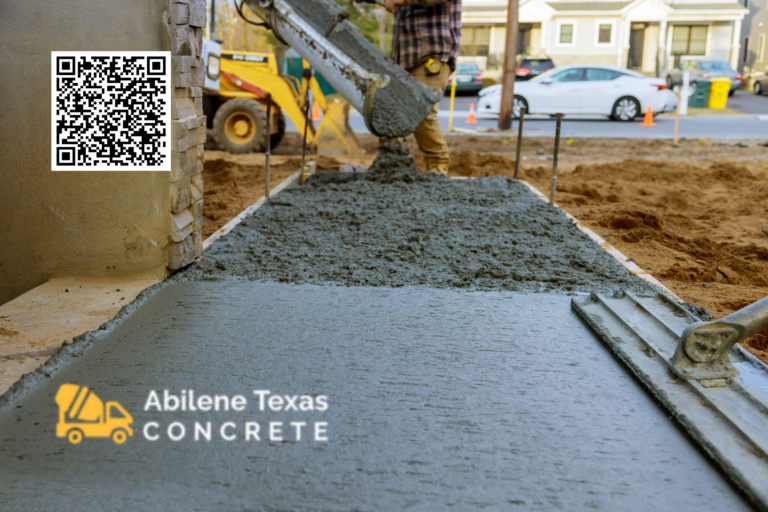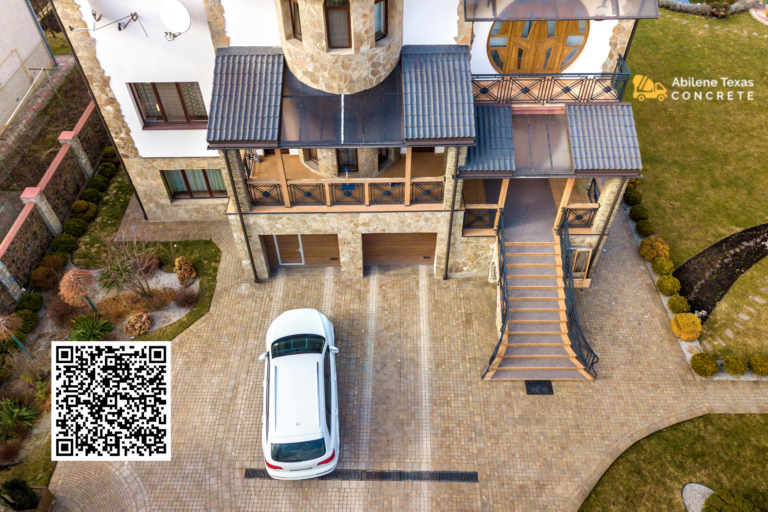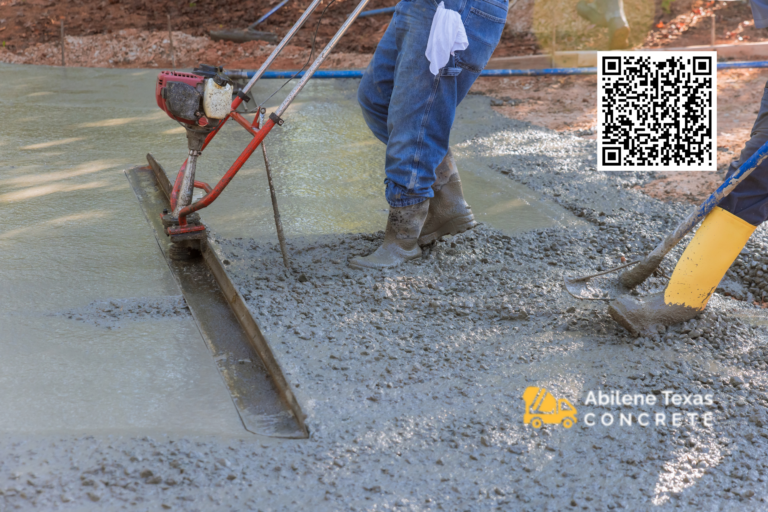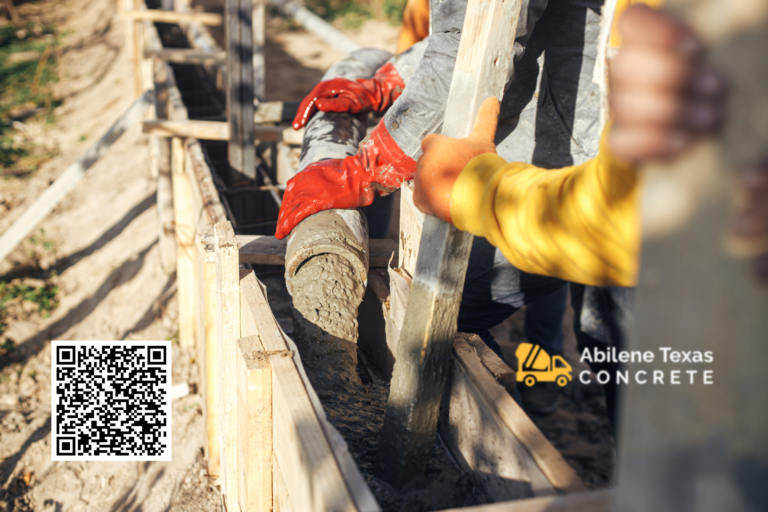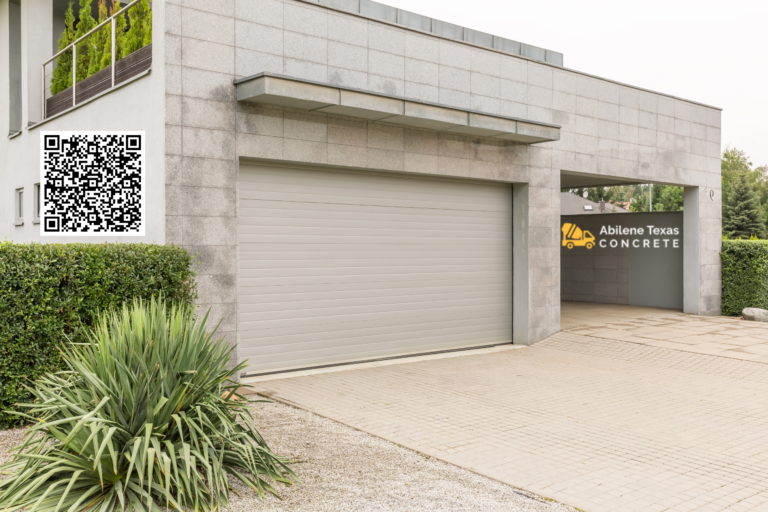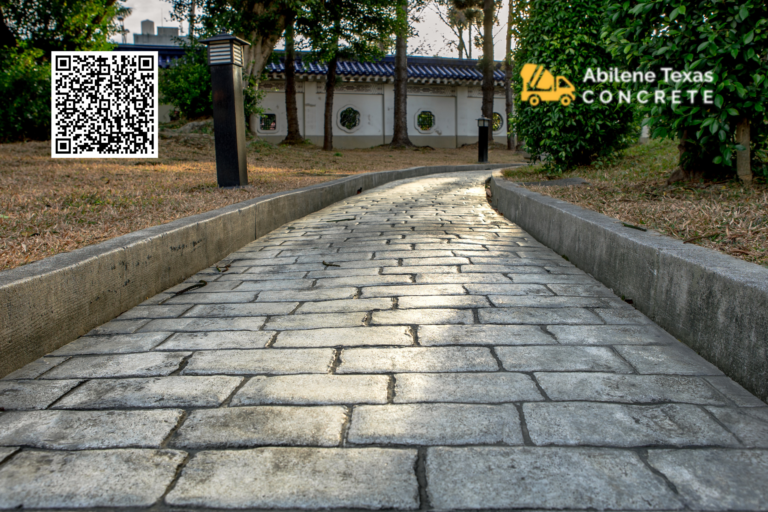What is the Difference Between Cement and Concrete?
When it comes to construction lingo, the terms “cement” and “concrete” are often used interchangeably, but in reality, they’re 2 distinct materials with different properties and uses. Understanding the difference between them is crucial, especially when you’re planning a residential construction project.
Please continue reading this blog to learn more about how concrete and cement are different. Trust the advice of our expert residential concrete contractors at Abilene Texas Concrete for a successful and attractive home project. Contact our Abilene, Texas concrete workers today!
What is Cement?
Cement is the binding agent that holds other materials together in construction. Cement a fine powder made primarily from limestone, clay, and other minerals, heated in a kiln and ground into a powder. The cement forms a paste that binds sand, gravel, and other aggregates when mixed with water, creating a solid mass.
What is Concrete?
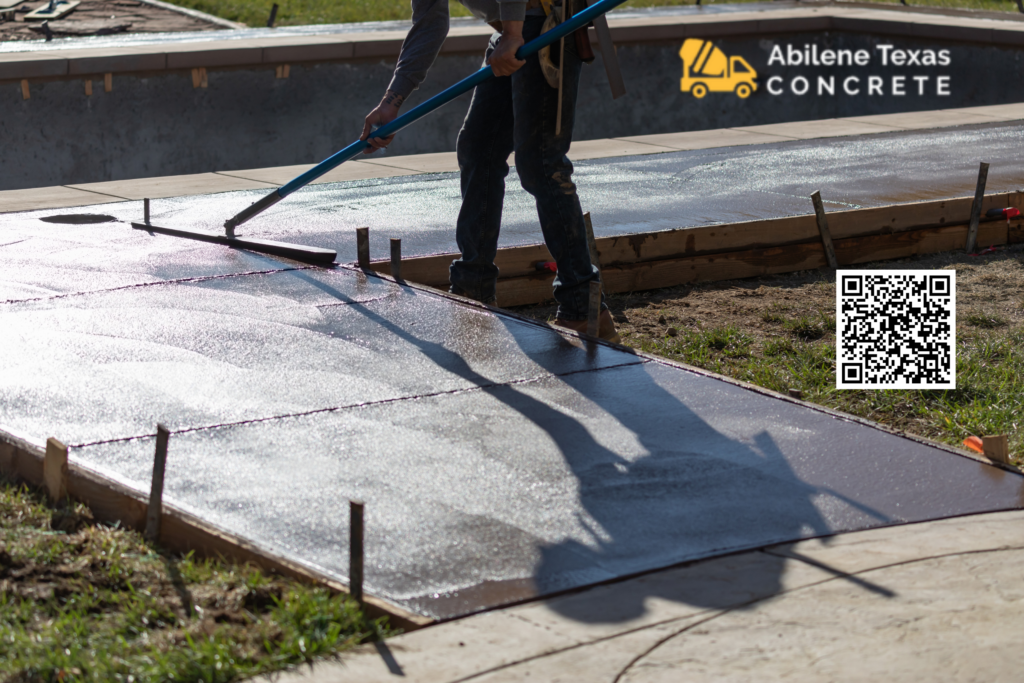
Concrete is the final product of mixing cement with water, sand, and aggregates such as gravel or crushed stone. Concrete is a versatile and durable material used in various residential home projects in Abilene, Texas—from concrete driveways, concrete curbs, concrete sidewalks, and concrete patios. Concrete hardens and becomes incredibly strong as it cures, making it ideal for structural applications and even stamped concrete designs for your home.
The Role of Cement in Concrete
Cement plays a crucial role in the strength and durability of concrete. It acts as a binding agent, holding the aggregates together and providing the necessary strength for structural applications. Without cement, the individual concrete components would not adhere to each other, resulting in a weak and brittle material.
Additionally, cement contributes to the water resistance of concrete. When properly mixed and cured, concrete can be highly resistant to water penetration, making it suitable for various applications, including concrete foundations, concrete pool decks, and concrete ramps.
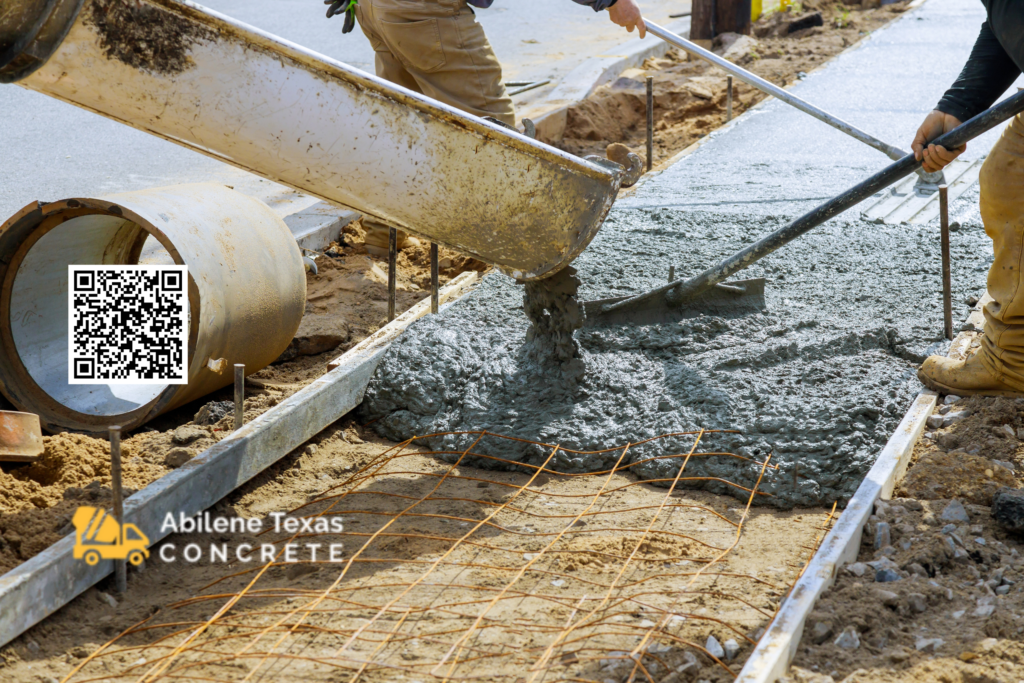
Differences in Composition Between Concrete and Cement
Cement is the binding agent that holds other materials together in home construction projects. It’s a fine powder made primarily from limestone, clay, and other minerals, which are heated in a kiln and then ground into a powder. When mixed with water, cement forms a paste that binds sand, gravel, and other aggregates, creating a solid mass.
Applications for Concrete and Cement
Understanding the difference between cement and concrete is essential for choosing the right material for your home pouring project. Cement is typically used as a component in concrete mixes, whereas concrete is used for various applications, including house foundations, slabs, walls, and pavements. Knowing which correct material to use and how to mix and apply it properly is crucial for achieving the desired results in your home project in Abilene, Texas.
Concrete or Cement: What is the Right Choice?
While the terms “cement” and “concrete” are often used interchangeably, they are distinct materials with different properties and uses. Cement is the binding agent, while concrete is the final product used in your home renovation project. Understanding their differences and how they work together is essential for successful construction projects.
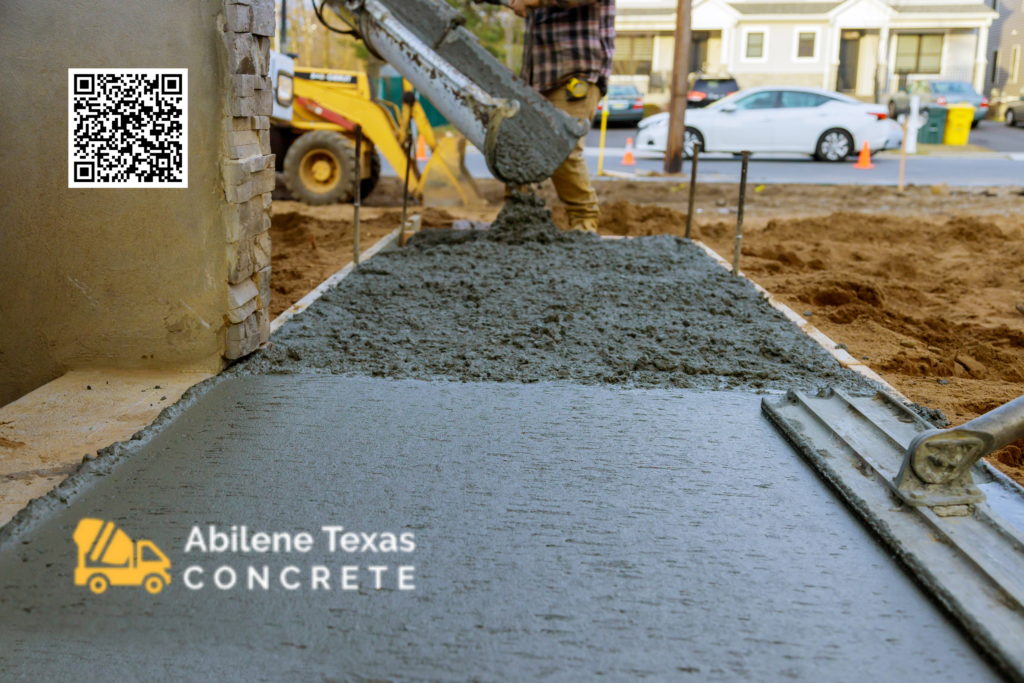
Contact Abilene Texas Concrete for Your Home Concrete Needs
While cement and concrete are related, they are distinct materials with different compositions and applications. Cement acts as a binding agent and is an essential component of concrete, which is a mixture of cement, water, and aggregates. Understanding the differences between cement and concrete is essential for anyone involved in home renovations in Abilene, TX, as it helps ensure the proper use and application of these materials.
As a seasoned residential concrete contractor serving Abilene, Texas, and the surrounding area, our team of professionals at Abilene Texas Concrete understands the importance of using suitable materials for your project. Whether you need a new driveway, patio, or home foundation, our skilled concrete team is here to help. Request a quote now, and let us bring your concrete visions to life.
For more information, please contact Abilene Texas Concrete. We have the skills to provide you with the quality work you expect! Contact us today!
Frequently Asked Questions About Concrete
Concrete typically takes about 28 days to fully cure, although it will continue to harden over time. However, it’s important to note that concrete reaches about 90% of its strength within the first 7 days.
Factors such as temperature, humidity, and the specific mix design can affect the curing time. To ensure optimal strength and durability, it’s essential to follow proper curing practices, such as keeping the concrete moist and protected from extreme temperatures during the curing process.
The best time for concrete work depends on various factors, including weather conditions and project requirements. In Abilene, Texas, spring and fall are typically ideal times for concrete projects, as the weather is milder and more predictable.
Extreme temperatures in summer can cause concrete to cure too quickly, leading to cracking, while cold temperatures in winter can slow down the curing process. However, with proper planning and preparation, concrete work can be done successfully year-round.
The thickness of a concrete driveway depends on several factors, including the weight of vehicles it will support and the soil conditions. In general, residential driveways are typically 4 to 6 inches thick.
However, if you expect heavier vehicles or have poor soil conditions, you may need to increase the thickness to provide adequate support and prevent cracking. It’s essential to consult with a professional concrete contractor in Abilene to determine the appropriate thickness for your specific project.
When properly installed and maintained, a concrete driveway can last anywhere from 20 to 40 years or more. Factors such as climate, soil conditions, and maintenance practices can affect the lifespan of an Abilene concrete driveway. Routine maintenance, such as sealing and repairing cracks, can help prolong its life and prevent costly repairs down the road.
By choosing high-quality materials and hiring experienced concrete professionals for installation, you can maximize the longevity of your concrete driveway.
It’s best to avoid driving on a newly poured concrete driveway for at least 7 days to allow it to cure properly and achieve sufficient strength. Driving on fresh concrete too soon can lead to cracking and other damage, thus compromising the integrity of the driveway.
During the curing period, it’s essential to keep heavy vehicles and equipment off the concrete surface to prevent indentations and other defects. Following these guidelines will help ensure a durable and long-lasting driveway.
While it’s impossible to guarantee that a concrete driveway will never crack, there are several steps you can take to minimize the risk of cracks forming.
First, ensure the concrete is properly mixed and placed by hiring a reputable concrete contractor with experience in residential concrete projects in Abilene, TX. Properly compacting the soil and providing adequate reinforcement, such as steel mesh or rebar, can also help prevent cracks.
Additionally, controlling the curing process by keeping the concrete moist and protected from extreme temperatures during the initial stages can reduce the likelihood of cracking.
Finally, regular maintenance, such as sealing the surface and repairing any minor cracks promptly, can help prolong the life of your concrete driveway and prevent more significant issues from developing.

